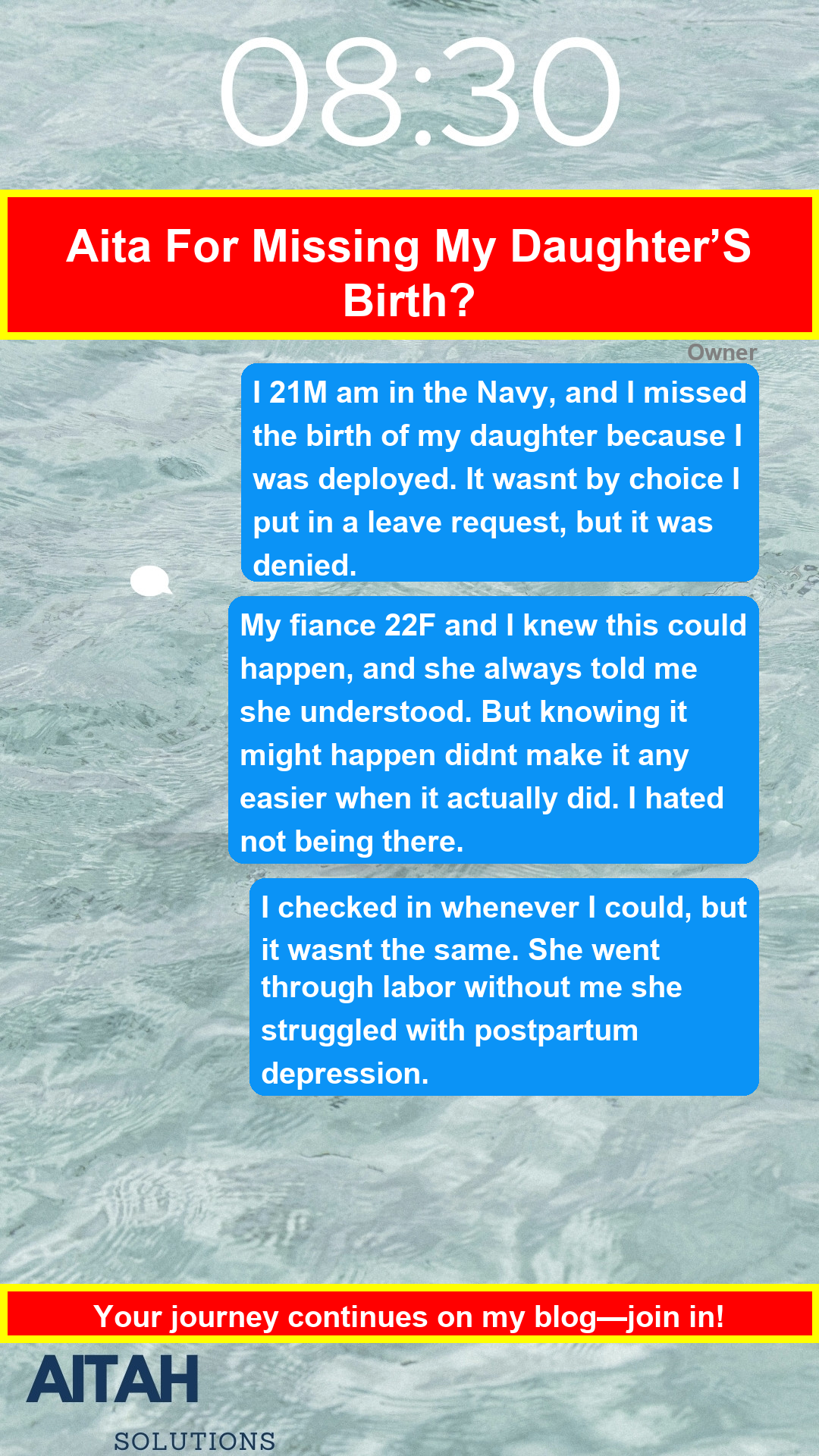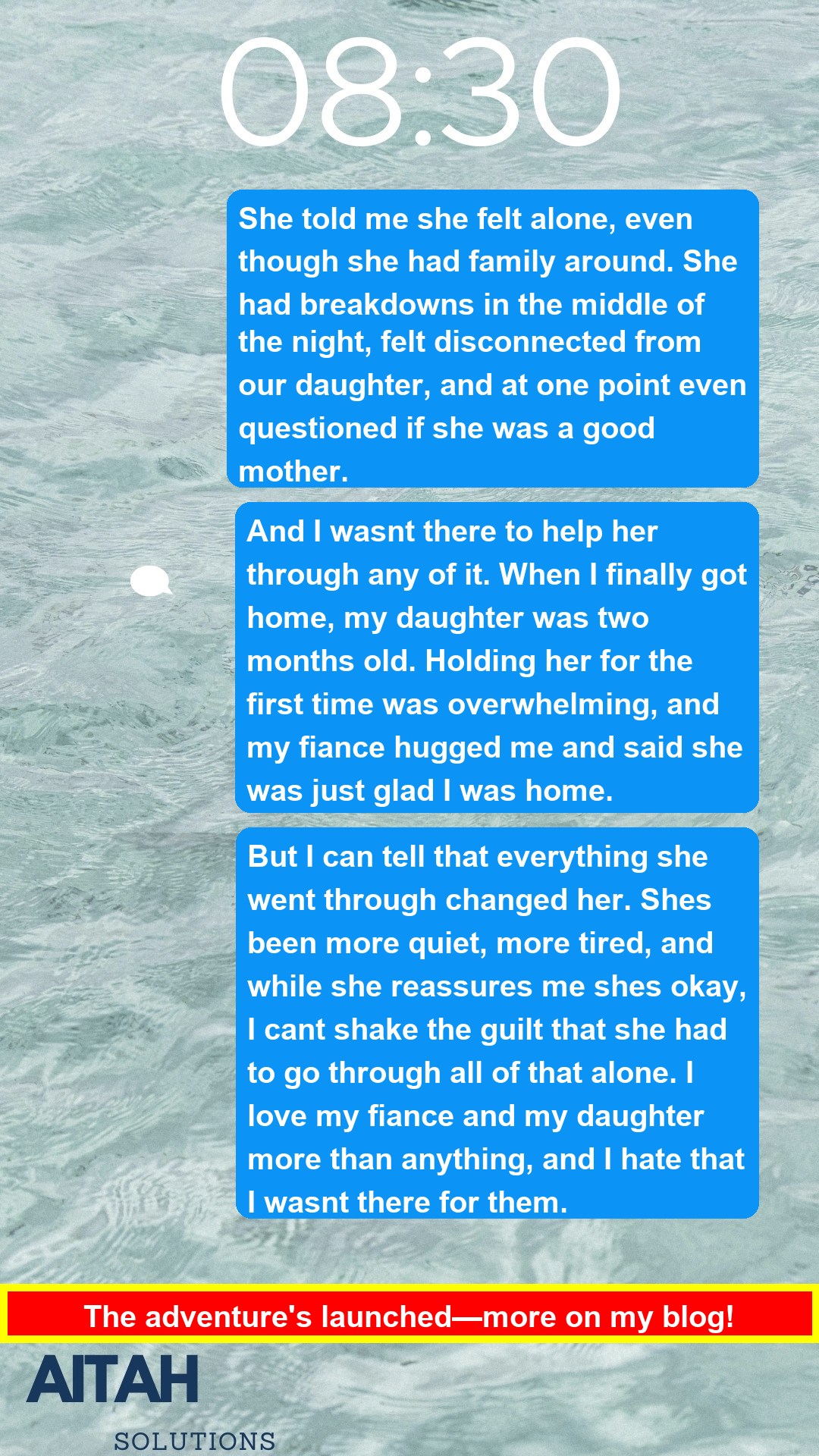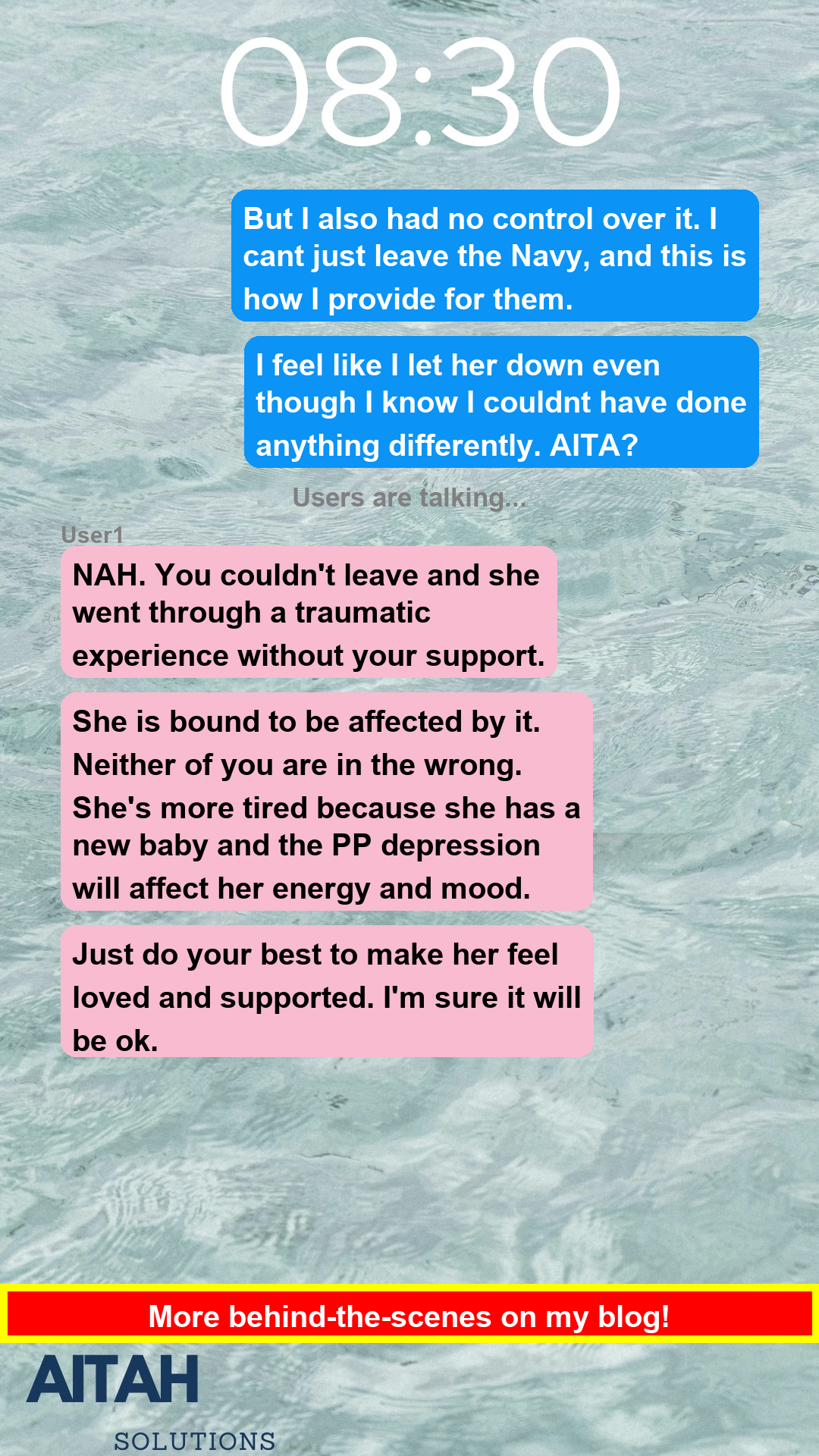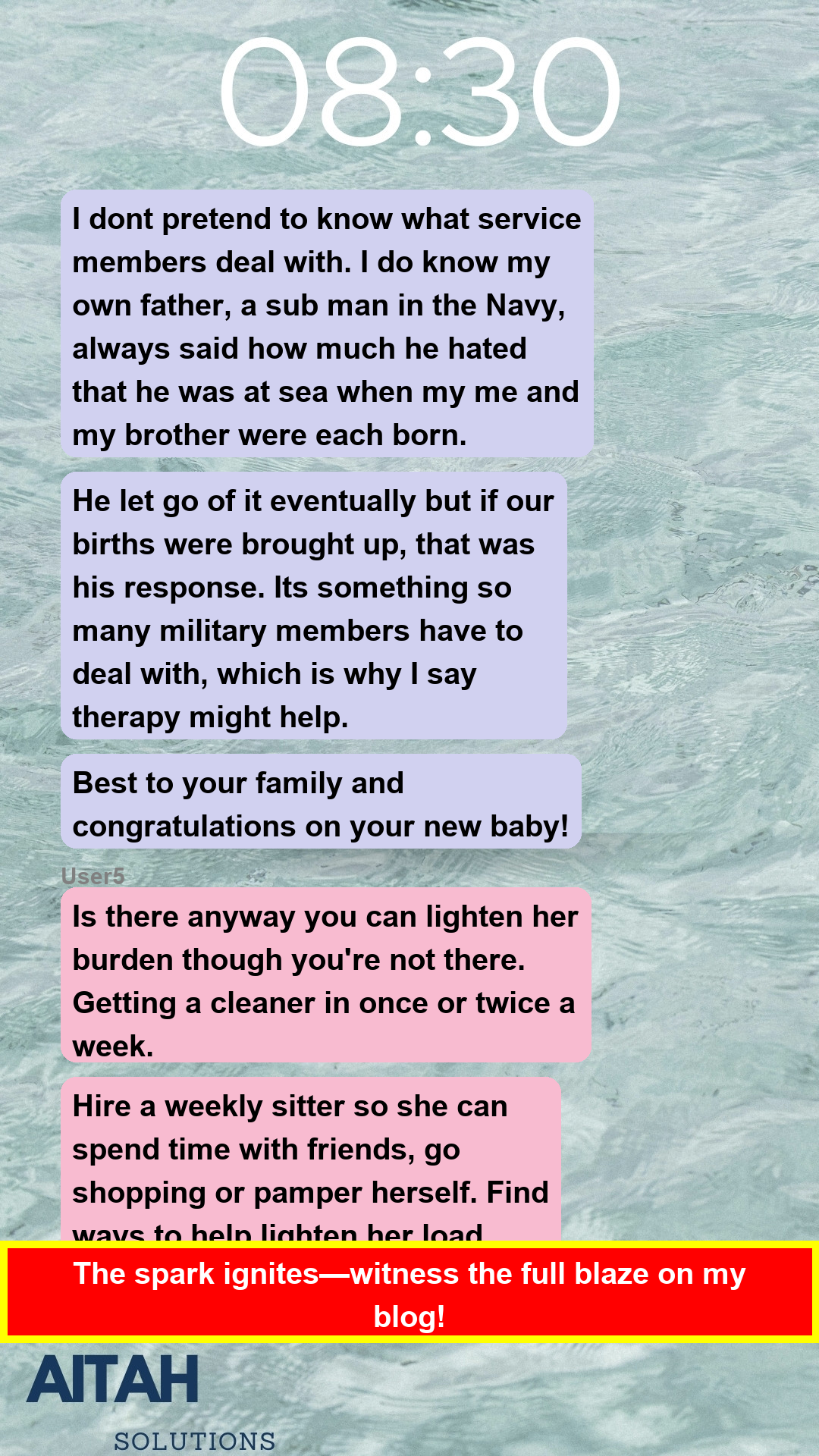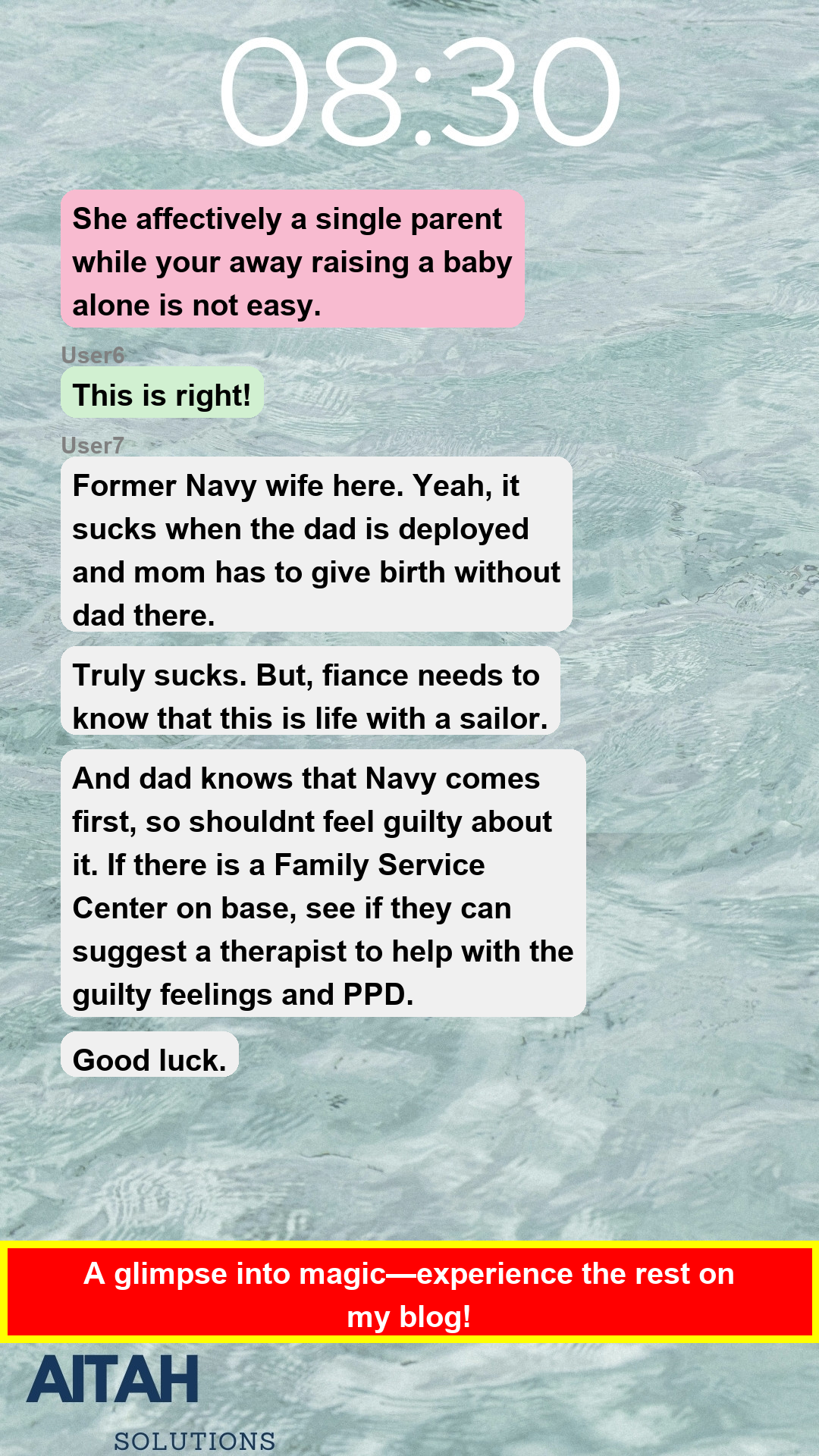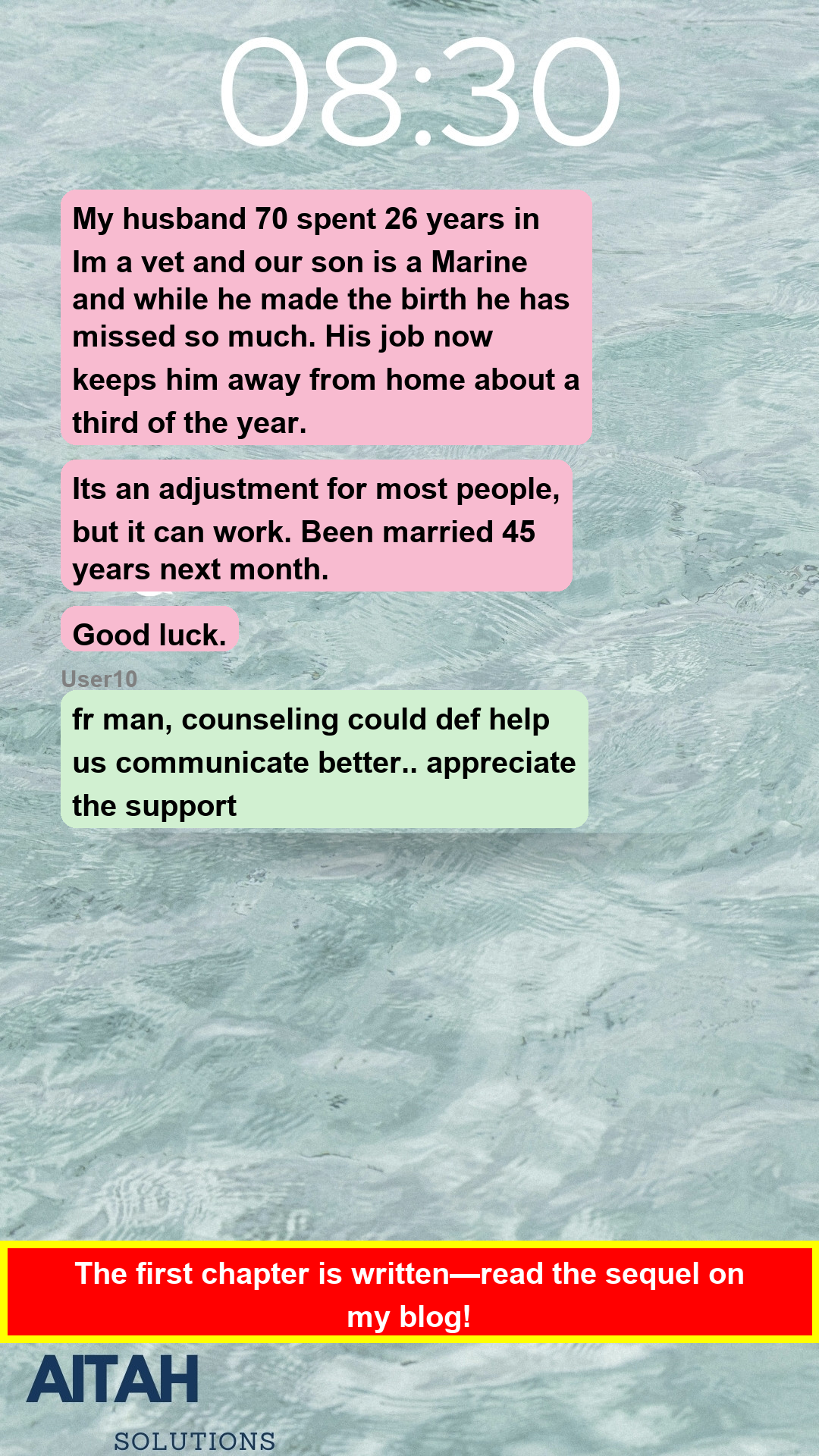AITA for Missing my daughter’s birth?
 Image credit: Pixabay (This is example image – Not the actual photo)
Image credit: Pixabay (This is example image – Not the actual photo)
Missing Milestones: A Navy Dad’s Heartfelt Dilemma
In a poignant tale of duty and sacrifice, a young Navy serviceman grapples with the emotional fallout of missing the birth of his daughter due to deployment. Despite his fiancée’s initial understanding, the reality of her loneliness and struggles with postpartum depression weighs heavily on him. As he returns home to a changed family dynamic, he wrestles with guilt and the feeling of inadequacy as a partner and father. This story resonates with many, highlighting the challenges faced by military families and the emotional toll of separation during critical life events.
Family Drama and Conflict Resolution: A Father’s Dilemma
A 21-year-old man, currently serving in the Navy, shares his experience of missing the birth of his daughter due to deployment. This situation has led to significant family drama and emotional turmoil for both him and his fiancée. Here’s a breakdown of the events and feelings involved:
- Deployment and Absence: The man was deployed when his fiancée went into labor. Despite submitting a leave request, it was denied, leaving him unable to be present during this crucial time.
- Fiancée’s Struggles: While the couple had discussed the possibility of his absence, it did not lessen the impact. His fiancée faced postpartum depression, feeling isolated and overwhelmed despite having family support. She experienced emotional breakdowns and questioned her abilities as a mother.
- Return Home: After two months, he finally returned home to meet his daughter. The moment was bittersweet; while he was overjoyed to hold his daughter, he felt the weight of guilt for not being there during his fiancée’s struggles.
- Changes in Relationship: The fiancée appeared different upon his return—more subdued and fatigued. Although she reassured him that she was okay, he sensed the emotional toll the experience had taken on her.
- Feelings of Guilt: The man grapples with feelings of inadequacy and guilt for not being able to support his fiancée during a challenging time. He loves his family deeply and feels conflicted about his responsibilities to the Navy versus his family.
In light of these events, he questions whether he is in the wrong for his absence, despite the circumstances being beyond his control. This situation highlights the complexities of family dynamics, especially in the context of military service and the emotional challenges of new parenthood.
As he seeks conflict resolution, he wonders how to navigate the feelings of guilt and the changes in their relationship while ensuring he provides for his family. The story raises important questions about support systems, communication, and the impact of external obligations on family life.
Ultimately, he asks: AITA?
This is Original story from Reddit
 Image credit: Pixabay (This is example image – Not the actual photo)
Image credit: Pixabay (This is example image – Not the actual photo)
Story
I, a 21M, am in the Navy, and I missed the birth of my daughter because I was deployed. It wasn’t by choice; I put in a leave request, but it was denied. My fiancée, 22F, and I knew this could happen, and she always told me she understood.
But knowing it might happen didn’t make it any easier when it actually did. I hated not being there. I checked in whenever I could, but it wasn’t the same.
She went through labor without me; she struggled with postpartum depression. She told me she felt alone, even though she had family around. She had breakdowns in the middle of the night, felt disconnected from our daughter, and at one point even questioned if she was a good mother.
And I wasn’t there to help her through any of it. When I finally got home, my daughter was two months old. Holding her for the first time was overwhelming, and my fiancée hugged me and said she was just glad I was home.
But I can tell that everything she went through changed her. She’s been more quiet, more tired, and while she reassures me she’s okay, I can’t shake the guilt that she had to go through all of that alone. I love my fiancée and my daughter more than anything, and I hate that I wasn’t there for them.
But I also had no control over it. I can’t just leave the Navy, and this is how I provide for them. I feel like I let her down even though I know I couldn’t have done anything differently.
AITA?
View the Original Reddit Post Here
Summary of Reddit Comments
The top Reddit comments indicate a general understanding that both partners are navigating a challenging situation, with many users emphasizing that neither is at fault (NAH). Commenters suggest that the fiancée is experiencing postpartum depression and needs support, while the partner should also seek help to process feelings of guilt and improve communication. Overall, there is a strong recommendation for counseling and practical support to help the couple reconnect and manage their new family dynamics.
Overall Verdict: NAH
Expert Advice for Resolving Family Conflict
In navigating the complexities of family dynamics, especially in the context of military service and new parenthood, it’s essential to approach the situation with empathy and understanding. Here are practical steps for both partners to help resolve the conflict and strengthen their relationship:
For the Fiancée
- Seek Professional Support: Consider reaching out to a therapist or counselor who specializes in postpartum depression. Professional guidance can provide coping strategies and a safe space to express feelings.
- Communicate Openly: Share your feelings with your partner. Let him know how his absence affected you and what you need from him moving forward. Honest communication can help bridge emotional gaps.
- Establish a Support Network: Lean on family and friends for support. Whether it’s help with the baby or simply someone to talk to, having a strong support system can alleviate feelings of isolation.
- Practice Self-Care: Prioritize your well-being by engaging in activities that bring you joy and relaxation. This could include exercise, hobbies, or simply taking time for yourself.
For the Partner
- Process Your Feelings: Acknowledge your feelings of guilt and inadequacy. Consider speaking with a counselor or therapist to help you navigate these emotions and develop coping strategies.
- Communicate Your Intentions: Express your love and commitment to your fiancée and daughter. Reassure her that you want to be an active and supportive partner and parent moving forward.
- Be Present: Make a conscious effort to be involved in daily activities with your fiancée and daughter. This can help rebuild your connection and demonstrate your commitment to your family.
- Educate Yourself: Learn about postpartum depression and its effects. Understanding what your fiancée is going through can foster empathy and improve your ability to support her.
For Both Partners
- Consider Couples Counseling: Engaging in couples therapy can provide a structured environment to address feelings, improve communication, and strengthen your relationship.
- Set Aside Quality Time: Schedule regular time together as a couple, free from distractions. This can help you reconnect and discuss your feelings and experiences in a supportive setting.
- Establish Open Lines of Communication: Create a safe space for both partners to express their feelings without judgment. Regular check-ins can help ensure both partners feel heard and supported.
- Be Patient: Understand that healing and adjustment take time. Be patient with each other as you navigate this new chapter in your lives.
By taking these steps, both partners can work towards healing and strengthening their relationship, ultimately creating a supportive environment for their family. Remember, it’s okay to seek help and lean on each other during this challenging time.
Join the Discussion
 Image credit: Pixabay (This is example image – Not the actual photo)
Image credit: Pixabay (This is example image – Not the actual photo)
What do you think? Would you have handled this differently?
Share your thoughts below! Vote: Do you agree with Reddit’s verdict?
